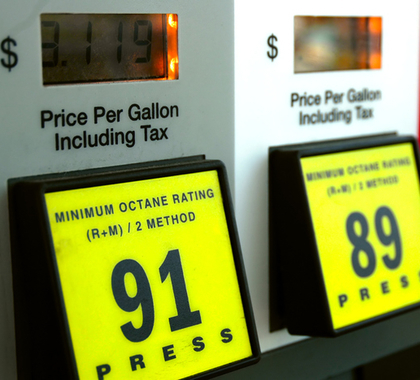Testimony delivered before the House Select Committee on the Climate Crisis in June by Robert Bryce, a visiting fellow at the Foundation for Research on Equal Opportunity, raised a warning on the potential hazards of electrifying transportation and the regressive costs of continued federal subsidization of the sale of electric vehicles (EVs).
“Electrifying parts of our transportation system may result in incremental reductions in greenhouse gas emissions,” Bryce argued. “But a look at history, as well as an analysis of the supply-chain issues involved in manufacturing EVs, the resource intensity of batteries, and the increasingly fragile state of our electric grid – which is being destabilized by bad policy at the state and national levels – shows that a headlong drive to convert our transportation systems to run on ‘green’ electricity could cost taxpayers untold billions of dollars, increase greenhouse gas emissions, be bad for societal resilience, make the U.S. more dependent on commodity markets dominated by China, make us less able to respond to extreme weather events or attacks on our infrastructure, and impose regressive taxes on low and middle-income Americans in the form of higher electricity prices.”
“EVs … impose … societal costs that are likely to exacerbate inequality and lead to more energy poverty,” Bryce continued. “Those costs include taxpayer-funded subsidies given to EV buyers, publicly funded charging stations, and the grid upgrades that will be needed to support the electrification of light and heavy-duty vehicles. Those costs will impose a significant cost burden on low and middle-income consumers, even though those consumers are unlikely to purchase EVs.”
Bryce notes the National Bureau of Economic Research (NBER) published a study in 2019 that found the average household income of EV buyers was roughly $140,000, or more than double the U.S. median household income. Backing that up, a 2013 study from the University of California at Davis found 83 percent of California EV owners had household incomes exceeding $100,000, with 46 percent earning incomes above $150,000. The average Tesla owner was found to have a household income of $293,000 that same year.
Bryce also pointed out a 2016 study published in the NBER-sponsored journal Tax Policy and the Economy that found 90 percent of the federal EV tax credits went to households with incomes “in excess of $75,000.” A 2018 study by the Pacific Research Institute found 79 percent of electric vehicle plug-in tax credits were claimed by households with adjusted gross incomes greater than $100,000.
While Bryce believes electrifying the transportation system may result in “incremental reductions” in greenhouse gas emissions, according to a 2018 study from the Manhattan Institute, the broad-based adoption of zero-emission vehicles (ZEVs) will likely only increase pollution and environmental costs. “Based on data from the U.S. Energy Information Administration (EIA),” the study notes, “increased reliance on ZEVs will increase overall emissions of sulfur dioxide, oxides of nitrogen, and particulates, compared with the same number of new internal combustion vehicles, even after accounting for emissions from petroleum refineries.”
Furthermore, a Manhattan Institute study finds there is effectively no economic value to the potential carbon dioxide (CO2) emission reductions of ZEVs. “Although new ZEVs will reduce CO2 emissions compared with new internal combustion vehicles, the overall reduction will be less than 1% of total forecast energy-related U.S. CO2 emissions through 2050,” the study continues. “That reduction will have no measurable impact on world climate and thus no economic value.”
“Even if, by 2050, all internal combustion vehicles were replaced by ZEVs,” the study concludes, “the resulting reduction in CO2 emissions would be less than 500 million tons per year. This is less than half the estimated annual impact of the U.S. Environmental Protection Agency’s now-moribund Clean Power Plan, which itself would have had no impact on world climate.”
Once again to Bryce’s point, the exorbitant cost of federal and state subsidies for ZEVs and their charging infrastructure is also highlighted in this Manhattan Institute study. In California alone, costs are estimated to exceed $100 billion, which will primarily be funded by low-income and middle-class families. Ironically, these families are unlikely to own ZEVs due to their high costs. In the end, mostly wealthy Golden State residents are benefitting from the taxpayer subsidies.
Bryce continued his testimony by declaring “our nuclear (and coal-fired power plants) are being prematurely shuttered at the same time that powerful lobby groups are pushing for the electrification of transportation. They are doing so at the same time our electric grid is becoming less reliable and more dependent on renewables and power plants that depend on the delivery of just-in-time natural gas. This shift in the electric generation mix is not enhancing societal resilience, it is undermining it. Adding large amounts of new transportation-related load to the electric grid will further undermine our resilience.” Adding to this, Bryce noted the “mass adoption of EVs will make the U.S. transportation sector more dependent on commodities like copper, cobalt, lithium, manganese, and rare earth elements. That fact presents a national security challenge because the markets for many of those critical minerals are dominated by China.”
“Congressional leaders must also be wary of adding yet more demand on an electricity grid that is being fragilized by increasing reliance on intermittent renewables and just-in-time delivery of natural gas,” Bryce continued. “Attempting to electrify transportation will not … ‘solve the climate crisis.’ Instead, it could result in the waste of many billions of dollars on technologies and infrastructure that consumers don’t use or don’t want to buy while making our transportation network more dependent on commodities controlled by China.”
“Before allocating billions of dollars on infrastructure and more subsidies for EVs,” Bryce concludes, “policymakers must have frank and transparent discussions about how efforts to decarbonize transportation will impact low and middle-income Americans, many of whom are already struggling to pay their energy bills. Higher energy costs are a form of regressive taxation. At a time when policymakers are grappling with inequality and social justice issues, they must be careful not to impose regressive policies that will exacerbate inequality.”
The questionable, meager environmental gains to be achieved by adopting tax breaks and subsidies encouraging the broad-based adoption of ZEVs are far outweighed by the extraordinary cost to vehicle owners and taxpayers. Such government subsidies and incentives make for poor public policy because they encourage rent-seeking, subvert the market’s natural mechanism for matching supply with demand at the correct price, and clash with other government incentives, all of which creates adverse fiscal consequences.
The following documents provide more information about ZEVs and fossil fuels.
Short Circuit: The High Cost of Electric Vehicle Subsidies
https://www.manhattan-institute.org/sites/default/files/R-JL-0518-v2.pdf
This Manhattan Institute study concludes the widespread adoption of electric vehicles in the United States will likely increase air pollution compared with new internal combustion vehicles. At the same time, subsidies for ZEVs and the required infrastructure to support them benefit the higher-income consumers who can afford to purchase them at the expense of lower-income consumers who cannot.
CAFE and ZEV Standards: Environmental Effects and Alternatives
https://reason.org/wp-content/uploads/2017/08/cafe_zev_standards_environment_alternatives.pdf
This Reason Foundation Policy Brief from Vice President of Research Julian Morris and Research Associate Arthur R. Wardle concludes that requiring manufacturers to comply with fuel economy standards, rather than using a more cost-effective alternative policy tool to achieve the same goals, likely harms the environment.
The Effect of Corporate Average Fuel Economy Standards on Consumers
https://reason.org/wp-content/uploads/2018/03/corporate-average-fuel-economy-standards-consumers.pdf
This Reason Foundation Policy Brief from Vice President of Research Julian Morris argues CAFE standards distort manufacturers’ incentives, forcing them to produce new vehicles with lower gas consumption than would be preferred by consumers.
Battery Electric Vehicles vs. Internal Combustion Engine Vehicles: A United States-Based Comprehensive Assessment
http://www.adlittle.us/sites/default/files/viewpoints/ADL_BEVs_vs_ICEVs_FINAL_November_292016.pdf
This study from Arthur D. Liddle Global concludes the ultimate environmental and economic reality of electric vehicles is far more complicated than their promise, and that ZEVs expose humans, animals, and plant life to three times more toxicity than traditional combustible-engine vehicles.
Fuel Economy Standards Are a Costly Mistake
https://www.heritage.org/government-regulation/report/fuel-economy-standards-are-costly-mistake
This Heritage Foundation Backgrounder argues Corporate Average Fuel Economy (CAFE) standards have added thousands of dollars to new-car prices, costing consumers at least $3,800 per vehicle since 2009. CAFE standards have a minimal impact on global warming – less than two hundredths of a degree Celsius in 2100, according to the Obama administration’s optimistic estimate. These standards easily fail the cost-benefit test by a huge margin.
CAFE Standards in Plain English
https://reason.org/wp-content/uploads/2017/01/pb137_cafe_standards.pdf
This Reason Foundation brief from Vice President of Research Julian Morris and Assistant Director of Transportation Policy Baruch Feigenbaum describes in plain English the historical development of the CAFE standards and how they function.
The U.S. Leads the World in Clean Air: The Case for Environmental Optimism
https://files.texaspolicy.com/uploads/2018/11/27165514/2018-11-RR-US-Leads-the-World-in-Clean-Air-ACEE-White.pdf
This paper from the Texas Public Policy Foundation examines how the United States achieved robust economic growth while dramatically reducing emissions of air pollutants. The paper states that these achievements should be celebrated as a public policy success story, but instead the prevailing narrative among political and environmental leaders is one of environmental decline that can only be reversed with a more stringent regulatory approach. The paper urges for the data to be considered and applied to the narrative.
The Social Benefits of Fossil Fuels
https://heartland.org/publications-resources/publications/the-social-benefits-of-fossil-fuels
This Heartland Policy Brief by Joseph Bast and Peter Ferrara documents the many benefits from the historic and still ongoing use of fossil fuels. Fossil fuels are lifting billions of people out of poverty, reducing all the negative effects of poverty on human health, and vastly improving human well-being and safety by powering labor-saving and life-protecting technologies, such as air conditioning, modern medicine, and cars and trucks. They are dramatically increasing the quantity of food humans produce and improving the reliability of the food supply, directly benefiting human health. Further, fossil fuel emissions are possibly contributing to a “Greening of the Earth,” benefiting all the plants and wildlife on the planet.
Climate Change Reconsidered II: Fossil Fuels – Summary for Policymakers
https://heartland.org/publications-resources/publications/climate-change-reconsidered-ii-fossil-fuels—summary-for-policymakers
In this fifth volume of the Climate Change Reconsidered series, 117 scientists, economists, and other experts assess the costs and benefits of the use of fossil fuels by reviewing scientific and economic literature on organic chemistry, climate science, public health, economic history, human security, and theoretical studies based on integrated assessment models and cost-benefit analysis.
Nothing in this Research & Commentary is intended to influence the passage of legislation, and it does not necessarily represent the views of The Heartland Institute. For further information on this subject, visit Environment & Climate News, The Heartland Institute’s website, and PolicyBot, Heartland’s free online research database.
The Heartland Institute can send an expert to your state to testify or brief your caucus; host an event in your state; or send you further information on a topic. Please don’t hesitate to contact us if we can be of assistance! If you have any questions or comments, contact Heartland’s Government Relations department, at [email protected] or 312/377-4000.




